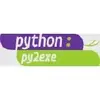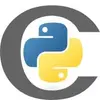Bbfreeze
Bbfreeze is a cross-platform Python library that enables everyone to generate stand-alone executables or extensions from Python scripts. It is compatible with Linux, Mac, and Windows and runs flawlessly on all of the mentioned systems. The solution is fully open-source and aims to help the audience create stand-alone exes using Python scripts. The program has similar functionalities like the prominent py2exe for windows, cx_Freeze, py2app for OS X, and PyInstaller.
One of its major features is easy installation, and you can install it using the easy_install command. The zop/egg file import tracking monitors zip files imports, including complete egg files, in case a module is used from an eggfile. The library is capable of keeping an eye on binary dependencies and includes shared libraries and DLLs required by a frozen program. Other highlights of the solution include distutils command ‘bdist_bbfreeze, multiple script freezing, automatic pathname rewriting, and inclusion of python interpreter.
Bbfreeze Alternatives
#1 cx_Freeze
cx_Freeze is an open-source tool that creates standalone executables from Python scripts, delivering unrivaled speed and accuracy. It is cross-platform, which makes it run on all platforms supported by Python. The solution is released under the terms of the PSF license. It gets continuous updates with the introduction of some of the finest features.
The newest version has added many improvements to the library, like refactored freezer and support for pathlib.Path, multiple bug fixes, code modernization, enhancements for multiprocessing, the addition of ModuleFinder engine that makes use of importlib.machinery. You will also find significant optimizations in the distribution and detection of libraries. Other recently implemented highlights include the latest or improved hooks, with attention on PySide2, matplotlib, PyQt5, and NumPy. Lastly, the support is extended to package metadata improving module and new DistributionCache.
#2 Nuitka

Nuitka is an open-source python compiler written in pure Python. It is released under the Apache 2.0 license and runs flawlessly with multiple Python versions like 2.6, 2.7, 3.3, 3.4, 3.5, 3.6, 3.7, 3.8, and 3.9. It is easy to use, requiring you to execute it inside the Python app, after which it will perform the necessary functions before outputting the extension module or executable.
Everyone can use all the Python extension modules and library modules without issues. The library translates the Python modules into a C-level program and then proceeds to use libpython and static C files to run it in the exact way as CPython. Each and every optimization function involves the avoidance of overhead, where it isn’t required.
#3 Py2exe

Py2exe is a powerful Python Disutilis extension that converts Python scripts into executable MS Windows programs and is capable of executing them without the need for a Python installation. GitHub hosts the repository, and you can check the source code and all the related materials from there. Everyone can view downloads for Python 2, the mailing list, and svn from there.
Thomas Heller is responsible for the original development of py2exe and still participates in its maintenance through multiple contributions. Other authors involved with development include Alberto Sottile, Jimmy Retzlaff, and Mark Hammond. Members of the community also have the option to participate in contributions. The library is used by some of the leading companies on the Internet like SpamBytes, BitTorrent, and many more.
#4 Shed Skin
Shed Skin is an open-source Python to C++ compiler released under the GPL-3.0 license. It serves as an experimental compiler capable of converting raw Python programs into enhanced C++ versions. The solution is capable of producing stand-alone executables or extension modules, which you can import and use in huge Python programs. Other than the typing restriction, programs are unable to run the Python standard library.
Besides this, many features of Python, like variable numbers and nested functions, are not supported. This library is the best solution for these problems and is designed to bring ease to the life of developers and programmers alike. It is maintained by the community belonging to different countries of the world.
#5 PyPy
PyPy is a quick and decent replacement for Python. It provides many advantages and unique features, with the major one being its speed. The fast pace is provided by the use of the Just-in-Time compiler. The programs in Python run quicker on PyPy. Another great feature is less memory consumption, which is there to ensure that memory-intensive Python programs run on less space as compared to CPython.
The solution is compatible with available Python code, works with cppyy and cffi programs, and is also able to execute prominent python libraries such as Django and twisted. It also has the ability to run Scikit-learn, NumPy, and more through the c-extension compatibility layer. PyPy offers complete and unmatched support for stackless mode, allowing for massive concurrency via micro-threads.
#6 Cython

Cython is an enhanced static compiler compatible with Cython as well as the Python programming languages. It eases the task of writing C extensions for Python and is really easy to grasp, requiring less effort. The solution provides you access to the power of C and Python to make it easy for you to type Python code that is able to generate calls from and to C or C++.
It converts readable Python code into basic C performance by inserting static Type declarations, which can also be found in the Python syntax. You can instantly identify bugs in the C, Python, and Cython code through the combined source code level debugging. The compiler gives you the opportunity to manipulate large data sets like multi-dimensional NumPy arrays. You can create apps within the huge, expansive, and prominent CPython ecosystem. The compiler can integrate with available code and data from super-powerful apps and libraries.
#7 Numba
Numba is a state-of-the-art Python compiler that converts a subset of NumPy and Python code into quick and efficient machine code. The improved and high-level machine code uses the industry-standard LLVM compiler library. The numerous algorithms compiled in Python have the potential to get to the speed level of FORTRAN or C. There is no need to do away with the Python interpreter or execute an individual compiler step.
All you need to do is implement a single Numba decorator to the function, and the rest will be taken care of without the need for manual intervention. The solution is developed to run alongside functions and arrays of NumPy. It produces optimized code for several array layouts and data types to boost performance. The tool works best with Jupyter notebooks to enable a user-friendly computing experience, paired with distributed execution frameworks such as Spark and Dask. Lastly, you get access to many options for parallelizing the code for GPUs and CPUs with minimal modifications.
#8 PyInstaller
PyInstaller combines a Python app and all dependencies associated with it in one small package. This allows the user to execute the packaged app without the need to interact with Python interpreters and all the related modules. The package works just fine with Python version 3.7 and beyond. It accurately wraps a large number of Python packages like wxPython, NumPy, PyQt, matpotlib, and more.
The solution has been tested on Linux, MS Windows, and Mac OS X. The results have been successful, and you can work with it without any problems. It is important to note here that the package is not a cross-compiler, and you can make a Windows app by running the solution on Windows. Similarly, Linux users will need to run it on Linux to create a Linux app. PyInstallers runs without issues on major systems like OpenBSD, AIX, FreeBSD, and Solaris, but the tests are not carried out again and again.
#9 PyOxidizer
PyOxidizer is an open-source, highly optimized Python app packaging and distribution solution released under the MPL-2.0 license. It is the best solution for generating binaries that embed Python. The vision is to create sophisticated distribution and packaging problems simple to help app maintainers to concentrate on developing apps without hassle.
The tool is programmed to generate one file executable with a replica of Python and the linked dependencies. You can replicate one exe file to a different machine and execute a Python app embedded within. Another great feature is that it reveals lower-level functionality for embedding self-contained Python interpreters as a software library and a tool.







